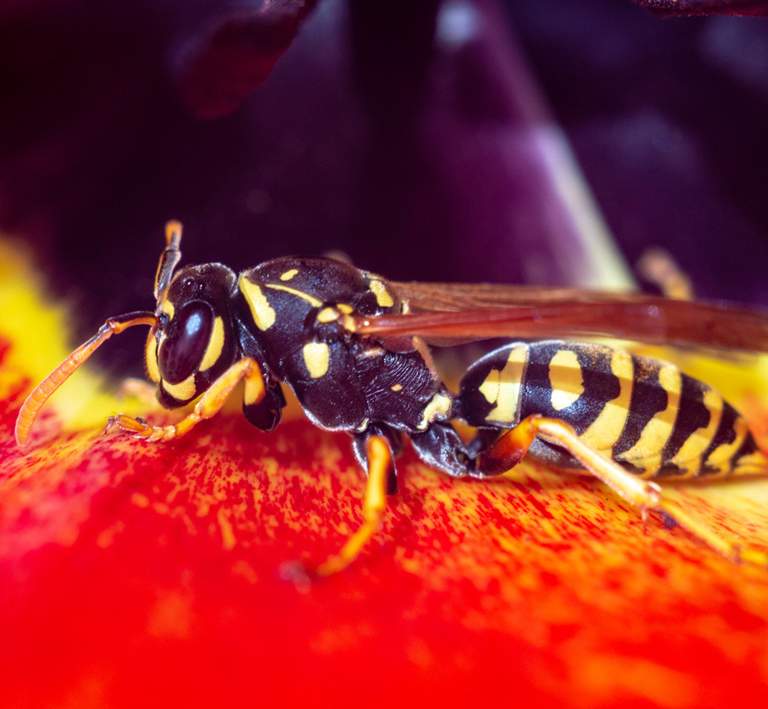Yellowjackets and Wasp Nests - what to do about flying insects

What is the difference between wasps and yellowjackets? The main difference is that yellow jackets are scavengers, which is why they are bothering you at picnics. Wasps are predators who are out looking for bugs to feed to their young. Both wasps and yellow jackets are dormant during the winter and begin showing up as spring arrives.
Flying insects pose a threat but can be removed safely
Both flying insects also have nests. Yellowjackets have a nest in the ground somewhere with up to 1000 residents. Often, the nest has taken over a rodent hole. Do not mess with their nest, because they aggressively defend their home! And unlike bees, they can sting you repeatedly so yellow jackets are far more dangerous.
Wasp nests are very common and often visible on your house. They find a hole in the siding or in stucco, or sometimes dangling from under the lip of your roof. Wasp nests are much smaller than those of yellow jackets. People often feel threatened by wasps and want them removed, but they really aren't that dangerous and you should probably just let them be unless it's right by a doorway or open window or back patio.
Wasps can be removed by a professional and the premium is usually for climbing. Omega does offer green alternatives for killing them with environmentally friendly, non-insecticides. This new class of non-toxic insecticide dust is just one of Omega's tools that make us "environmentally friendly" pest control.
Also, a tip: the best time of day to spray a wasp or other flying insect nest is dusk or dawn because the insects are all there. During the day, they are out hunting or scavenging so you won't kill them all in the middle of the day.
Removing a yellow jacket nest is a bit more of a production because it involves a technician in a bee suit using a duster to inject the non-insecticide into the nest.
Meanwhile, if you have bees…. they can be very useful elsewhere (pollinating plants and producing honey) so please check out our story on safely removing bees.




